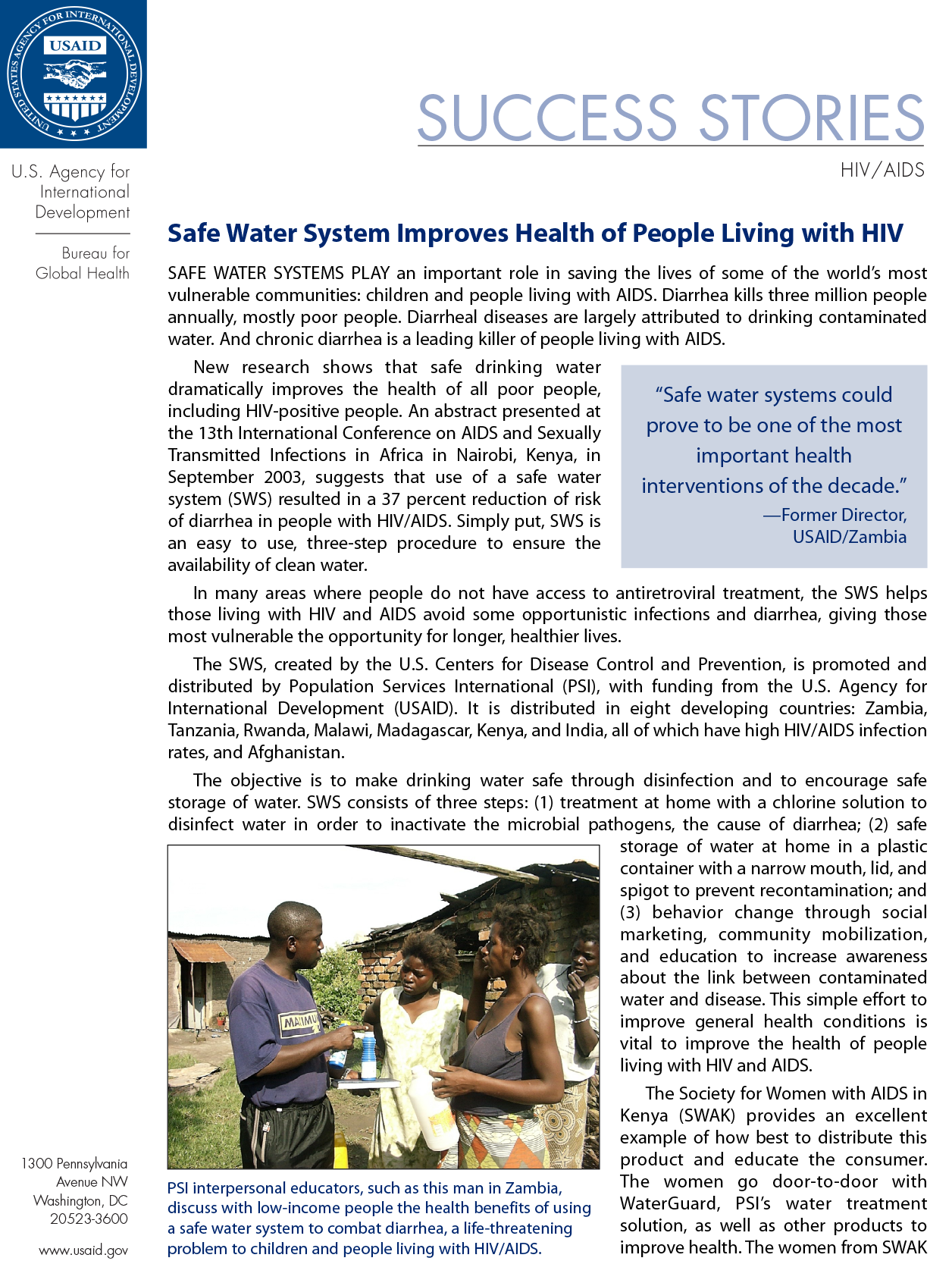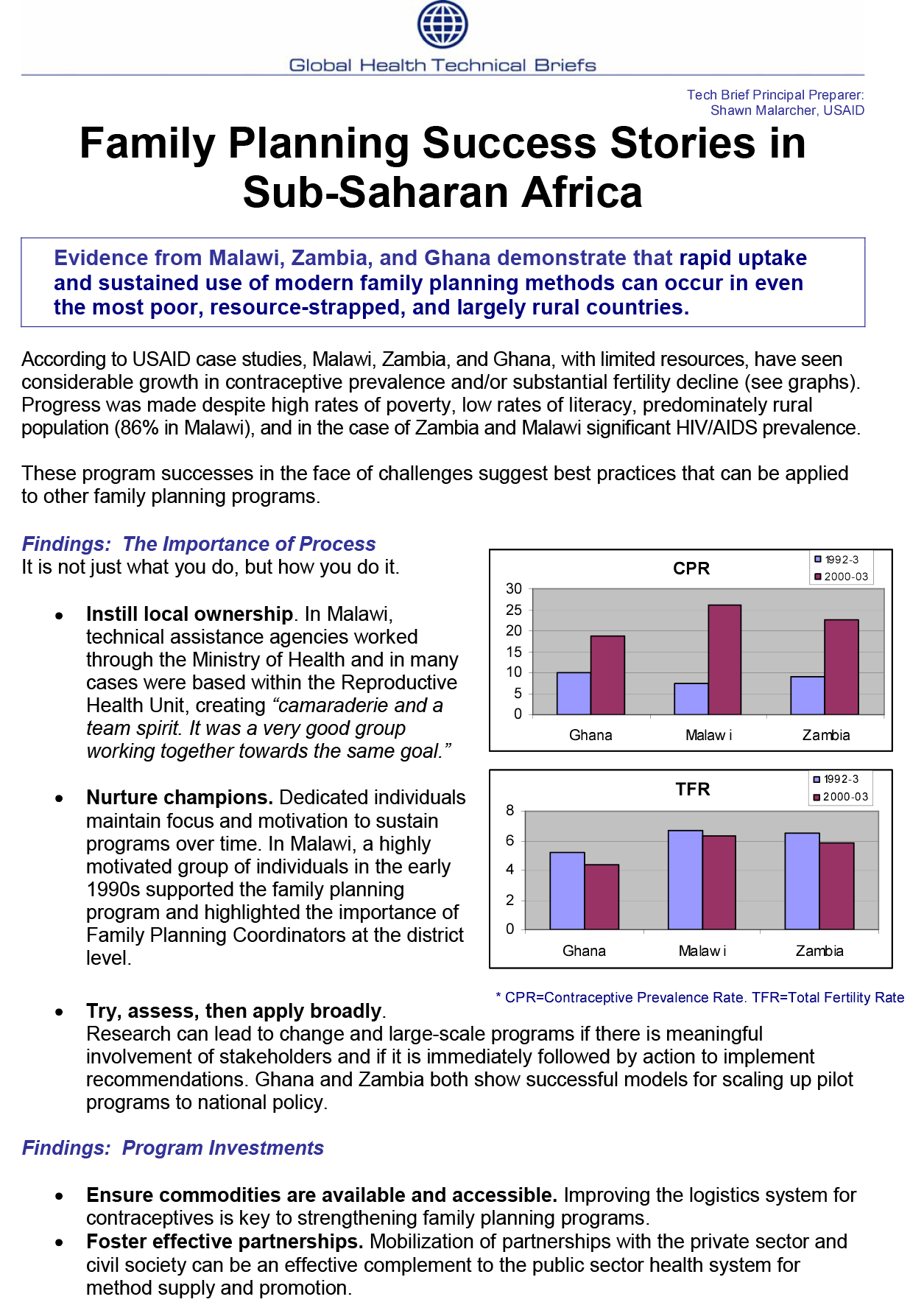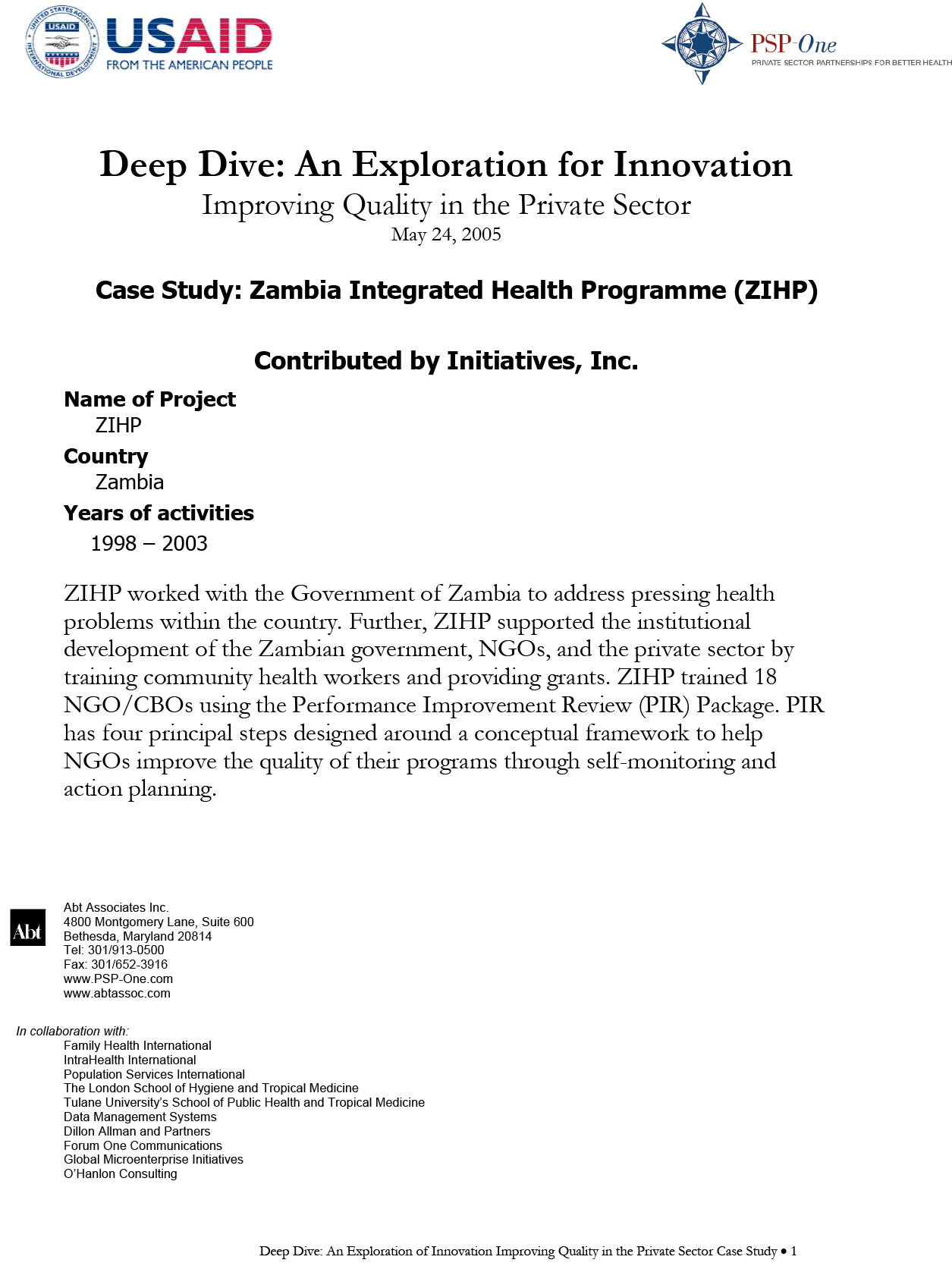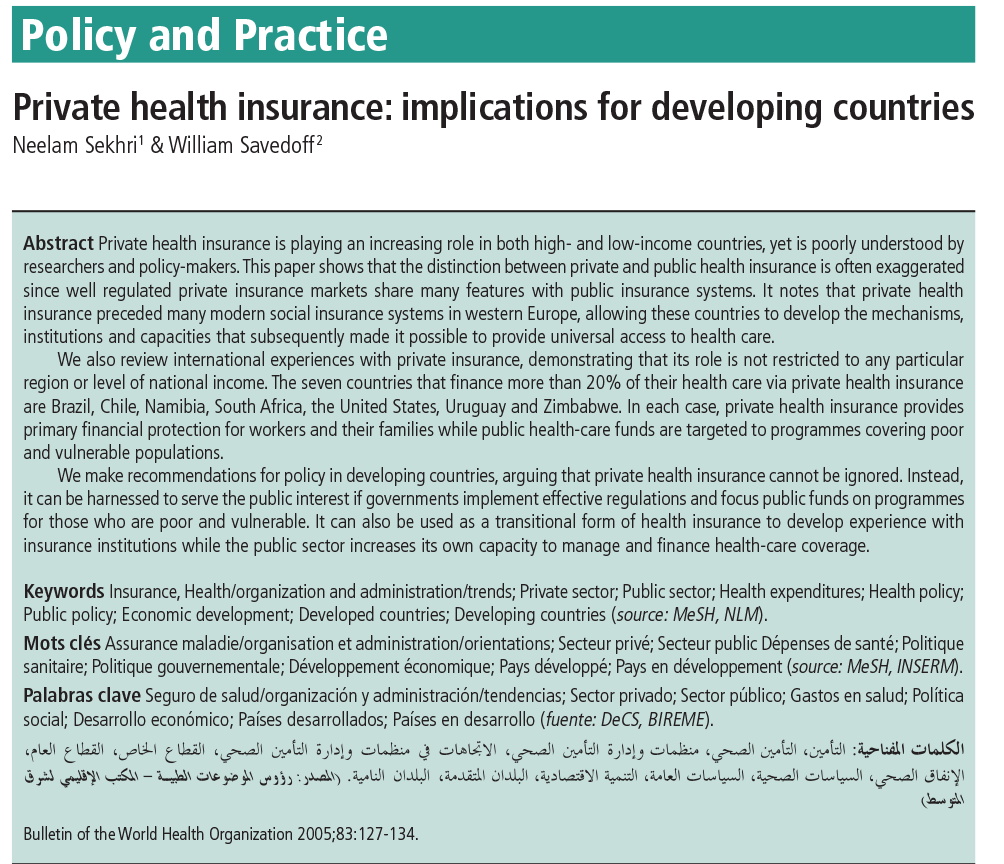
Resource Library
Understanding Mosquito Net Use at the Household Level
Malaria prevention efforts promoting insecticide-treated nets (ITNs) often assume that if a household gets a mosquito net, that net will actually be used and that those most vulnerable—children under five and pregnant women—will sleep under it. To date, there has been little data on the use of nets/ITNs within the household, and whether programs need to adjust their communication strategies to make sure nets are used and that the most vulnerable sleep under them. And little has been documented about other aspects of household net use that would be useful for planning and assessing ITN programs. The NetMark project of the Academy for Educational Development (AED) conducted household surveys in Nigeria, Senegal, and Zambia in 2000, and again in 2004 in those countries plus Ghana and Ethiopia.
Resource Type : Other
Country : Nigeria, Senegal, Zambia
Year : 2006-04-21T10:45:00
Language : English
Project : SHOPS

Resource Library

PSI Safe Water Treatment, Products and Services
Describes PSI's work in safe water systems and household based water treatment, focusing on projects in Zambia, India, Madagascar, Tanzania and Afghanistan. An excellent summary on the need for home-based water treatment systems and products available to treat diarrhea causing agents.
Resource Type : Webinar
Country : Afghanistan, India, Madagascar, Tanzania, Zambia
Year : 2005-01-01T14:30:00
Language :
Project : SHOPS

Resource Library
Safe Water System Improves Health of People Living with HIV
Describes the important role played by safe water systems in saving the lives of children and persons infected by HIV/AIDS. Provides examples from safe water systems programs in Kenya and Zambia.
Resource Type : Other
Country : Kenya, Zambia
Year : 2004-05-01T14:15:00
Language : English
Project : SHOPS

Resource Library
Disinfecting Water, Saving Lives
A profile of point-of-use safe water products to prevent diarrhea and improve family health. Describes Safe Water Solution (SWS) and PuR, Purifier of Water and highlights PSI point-of-use water programs in 7 countries.
Resource Type : Brochure/Postcard
Country : Haiti, India, Kenya, Madagascar, Malawi, Tanzania, Zambia
Year : 2005-10-01T12:00:00
Language :
Project : SHOPS

Resource Library
Family Planning Success Stories in Sub-Saharan Africa
Evidence from Malawi, Zambia, and Ghana demonstrate that rapid uptake and sustained use of modern family planning methods can occur in even the most poor, resource-strapped, and largely rural countries.
Resource Type : Report
Country : Ghana, Malawi
Year : 2005-11-29T12:00:00
Language : English
Project : SHOPS

Resource Library
Case Study: Zambia Integrated Health Programme (ZIHP)
ZIHP worked with the Government of Zambia to address pressing health problems within the country. Further, ZIHP supported the institutional development of the Zambian government, NGOs, and the private sector by training community health workers and providing grants. ZIHP trained 18 NGO/CBOs using the Performance Improvement Review (PIR) Package. PIR has four principal steps designed around a conceptual framework to help NGOs improve the quality of their programs through self-monitoring and action planning.
Resource Type : Other
Country : Zambia
Year : 2005-09-13T15:15:00
Language : English
Project : SHOPS

Resource Library
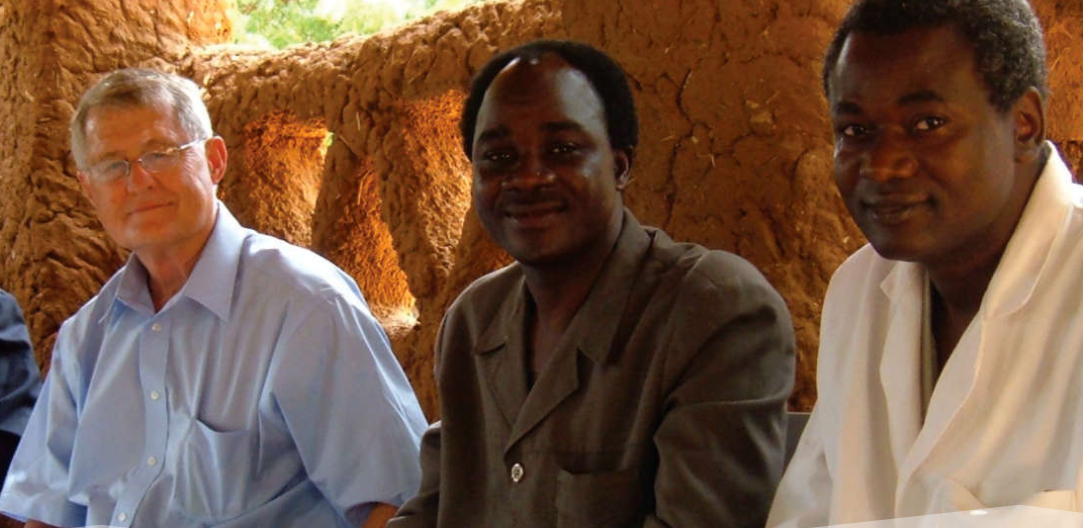
The Quality Assurance Project
Funded by the U.S. Agency for International Development (USAID), the Quality Assurance Project (QAP) seeks to improve the quality of health, population, and nutrition through state-of-the-art technical support. QAP builds on over ten years of experience using modern quality assurance methods to improve healthcare in middle income and developing countries. QAP also addresses human resource management issues that impact quality of care.
Resource Type : Website
Country : Bangladesh, Benin, Bolivia, Cambodia, Egypt, Guatemala, Honduras, Indonesia, Jamaica, Jordan, Kenya, Malawi, Morocco, Nepal, Nicaragua, Nigeria, Pakistan, Peru, Philippines, Russia, Rwanda, South Africa, Tanzania, Uganda, Vietnam, Zambia, Zimbabwe
Year : 2005-01-01T13:45:00
Language : English
Project : SHOPS

Resource Library
Private Health Insurance: Implications for Developing Countries
Private health insurance is playing an increasing role in both high- and low-income countries, yet is poorly understood by researchers and policy-makers. This paper shows that the distinction between private and public health insurance is often exaggerated since well regulated private insurance markets share many features with public insurance systems. It notes that private health insurance preceded many modern social insurance systems in western Europe, allowing these countries to develop the mechanisms, institutions and capacities that subsequently made it possible to provide universal access to health care. We also review international experiences with private insurance, demonstrating that its role is not restricted to any particular region or level of national income. The seven countries that finance more than 20% of their health care via private health insurance are Brazil, Chile, Namibia, South Africa, the United States, Uruguay and Zimbabwe. In each case, private health insurance provides primary financial protection for workers and their families while public health-care funds are targeted to programmes covering poor and vulnerable populations. We make recommendations for policy in developing countries, arguing that private health insurance cannot be ignored. Instead, it can be harnessed to serve the public interest if governments implement effective regulations and focus public funds on programmes for those who are poor and vulnerable. It can also be used as a transitional form of health insurance to develop experience with insurance institutions while the public sector increases its own capacity to manage and finance health-care coverage.
Resource Type : Brief
Country : Brazil, Namibia, South Africa, United States, Zambia
Year : 2005-02-01T15:45:00
Language : English
Project : SHOPS
Pagination
- Previous page
- Page 4



